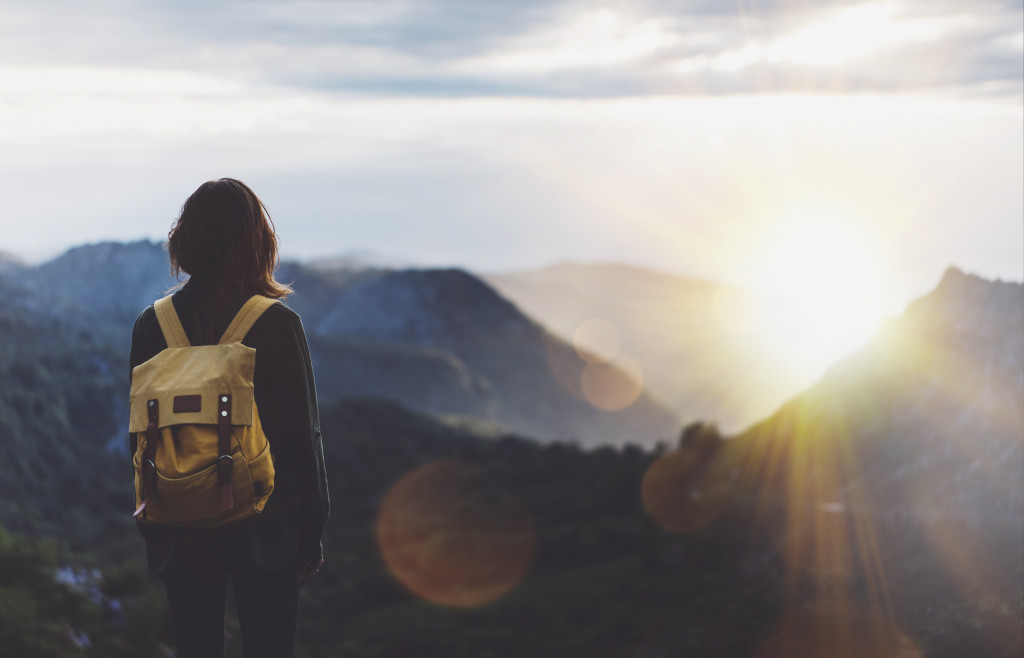Want to get your body moving, soul-search, or just unwind outdoors and get some fresh air? Whether you’re a workout enthusiast or simply inclined to stay in touch with your roots, hiking will work well for you. It doesn’t matter if you’re a beginner. If you prepare for it the right way and preferably secure good company, then you’ll nail the adventure safely and enjoyably.
But when should you go hiking? Most people prefer during spring or summer. You may also want to consider off-seasons—fall or winter—especially if you plan for national parks. At this time, you get fewer crowds, bugs, and comfortable temperatures. It means you see more wildlife, too, from squirrels and chipmunks to many other species.
What to Wear
It depends on the weather you’re going for. A few hours before your hike, listen to the weather forecast. This is the best way you can determine what to pack and wear. But you can always go for an all-season outfit to wear or store in your bag. Firstly, choose an undergarment that can keep you warm and wick the moisture. Any wool or synthetic underwear can do the job.
For the outer garments, choose any comfortable, fitting, breathable, and durable pants, leggings, or shorts, T-shirts that comfortably support where your backpack will rub your skin, and an insulating vest or jacket and a waterproof jacket. Bring a beanie, hat, or cap too to protect your head, whether rain or shine.
Also, your running shoes will not work out there. Make sure you use hiking boots or hiking shoes and socks for added comfort. Ankle gaiters will also be of great help to cover your shins most especially when you’re crossing streams. Bring accessories such as gloves and neck protection. All these will make you ready at any season you head out to hike.
Secure Other Hiking Essentials
Aside from the right items to wear, National Park Service (NPS) has a comprehensive list of essential items to include inside your backpack. Bring a GPS, sun protection, flashlights, first aid kit, matches or lighter, and tools you need for your activities. Make sure that you’re ready in case of emergencies, so bring extra food supplies, a purification system for access to clean water all the time, and emergency shelters such as tents or tarps. We never know if you’d be caught up and have to stay for a day or two.

How to Prepare Your Body for the Hike
When you’re a beginner, and alone, it’s better that you start small, which means hiking a little shorter distance and walking on a paved or level surface. If you’ve determined how much your body can go, then you can go farther. But if you want to make the best of your adventure, prepare your body with the right exercises.
Getting your body in shape before hiking will improve your resilience, strength, and stability for the very day. For at least a week before your hike, go for a brisk walk, walk up and down the stairs, do lunges and push-ups, jump rope, and practice carrying your bag.
Safety Tips to Keep in Mind
- Bring a company. Avoid the risk of being stranded alone, so make sure that you bring a friend or make it a group activity. You may even bring your trained canine with you. Companies like Blackwood Canine offer private lessons designed to keep your dog comfortable with other people and facilitate communication between you and your dog.
- Alone or with a group, be sure to let others know where you’ll be heading, especially those not going with you. Let them know what time they should be worrying or calling for help about you.
- Customize your first aid kit. You can even buy a pre-made hiking first aid kit consisting of items that can help you deal with the most common hiking injuries. These include bug bites, ankle rolls, scrapes. However, you can always customize your own first aid kit, making sure to include antiseptic, adhesives, and elastic wrap bandages.
- Know the trail. After selecting a trail, get a map of the area and take note if it is a loop, has an intersecting trail, or if you’ll need to backtrack a second car. Remember to stay on the trail on the very day you hike.
- Do a little trial hike before getting onto the major hike. You never know what things you might regret on the very hiking day. It might be your backpack is too heavy or at least know how much food and water you’re bound to consume. If you start small and get it right, you will enjoy the experience better and maybe even get back many other next times.
- Know when to turn around and back. Don’t ignore the signs of your body needing a break, incoming storms, or force your group’s straggler to keep up. No matter how much you want to get to the endpoint, your and your companions’ safety matters above all.
Thinking of going on a hike? Whether you’re alone or accompanied, go ahead. Keep in mind your safety and the hikers’ principle by heart—take nature all in but leave no trace. Enjoy your great escape to peace.
